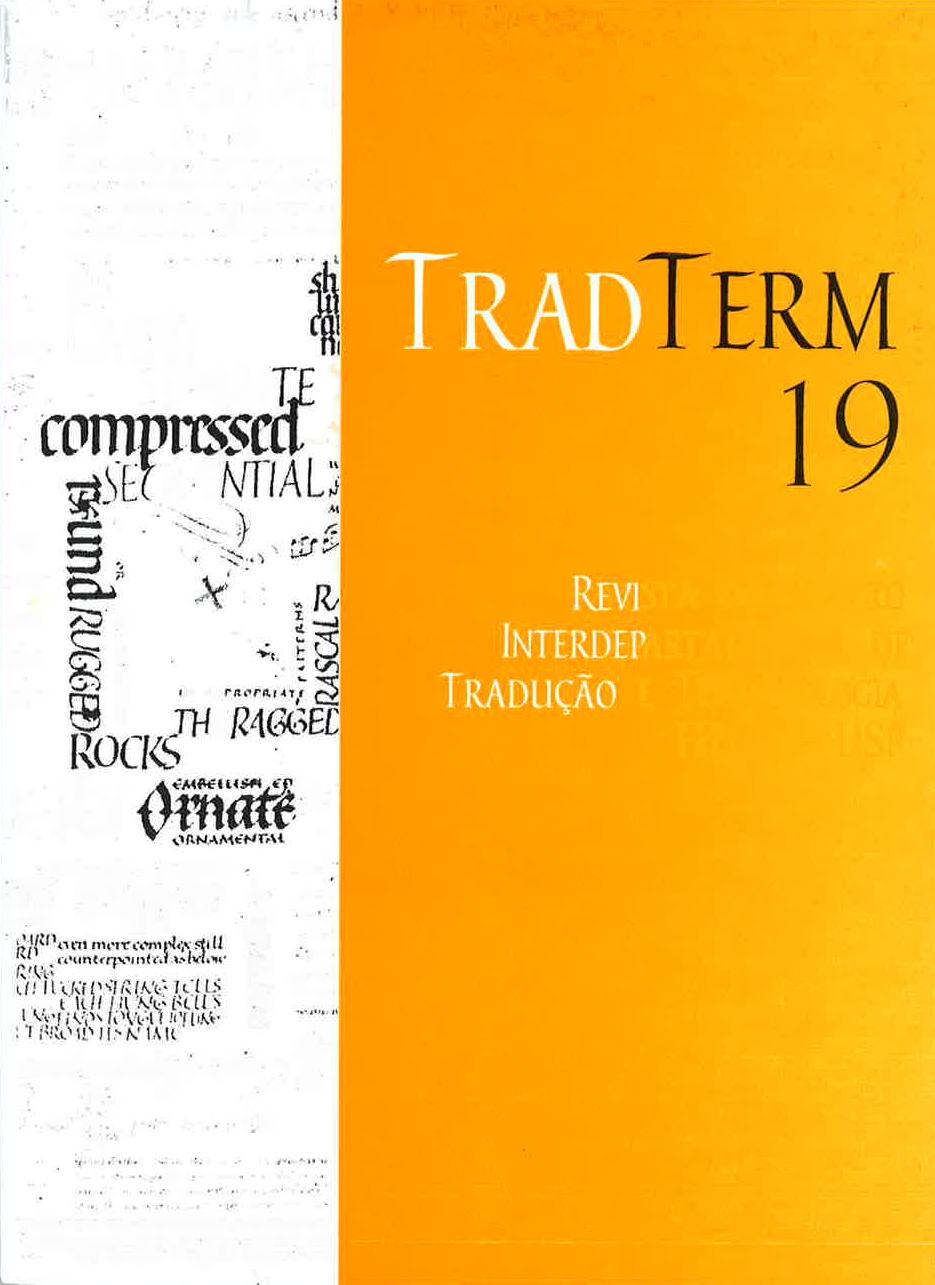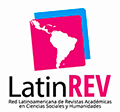Investigações sobre a construção do fitônimo CAPOEIRA: aspectos do campo léxico-semântico e geolinguística indígenas
DOI:
https://doi.org/10.11606/issn.2317-9511.tradterm.2012.47353Keywords:
Toponymy, Geolinguistics, lexicology, space, the Western tradition, wilderness.Abstract
The word capoeira is a vernacular phrase in Tupi Brazilian Portuguese. Kaá-uêra, carries the notion of “forest which is not the same as it was”. This sentence shows the elegant interpretation of data on the indigenous tradition of the landscape. Today, capoeira term is widely used in scientific discourse, near your namesake of the Western tradition: secondary forest. We intend to develop here the question of why there is a strange difference between the intellectual direction of the secondary forest and capoeira? This oddity is the fact the word capoeira has a lexical-semantic field that includes not only the vegetation related training, as well as homologous and complementary range of phenomena of the environment, fauna and flora. Something similar does not happen with the term secondary forest. To try to understand why this observation, we assume that the first term is the result of a totalizing thought, continuing a tradition handed down from the ancient past, while the second term is the heir to a recent split: the fragmentation of Hellenistic thought. In the West, this fragmentation has a symbolic moment: the trial of Socrates. Armed with studies of Hannah Arendt, we see elements of this fragmentation of the "separation between the philosopher and the life in the city [which] means the separation between thought and action" (Wagner 2002), which resulted in the separation "between thought and [...] between a philosopher and political reality" (Wagner 2002). The result of this split was the largest facility in the Western tradition, the dichotomy between the vita activa and vita contemplativa who officiated at the same split between thought and action. We believe this is the intellectual heart of the distinction between the term secondary forest and capoeira, the dual languages produced by the subsequent division of the absolute and relative space and nature and society, an issue noted by Smith (1988).
Downloads
Downloads
Published
Issue
Section
License
Autores que publicam nesta revista concordam com os seguintes termos:
- Autores mantém os direitos autorais e concedem à revista o direito de primeira publicação, com o trabalho simultaneamente licenciado sob a Licença Creative Commons Attribution BY-NC-SA que permite o compartilhamento do trabalho com reconhecimento da autoria e publicação inicial nesta revista.
- Autores têm autorização para assumir contratos adicionais separadamente, para distribuição não-exclusiva da versão do trabalho publicada nesta revista (ex.: publicar em repositório institucional ou como capítulo de livro), com reconhecimento de autoria e publicação inicial nesta revista.
- Autores têm permissão e são estimulados a publicar e distribuir seu trabalho online (ex.: em repositórios institucionais ou na sua página pessoal) a qualquer ponto antes ou durante o processo editorial, já que isso pode gerar alterações produtivas, bem como aumentar o impacto e a citação do trabalho publicado (Veja O Efeito do Acesso Livre).








